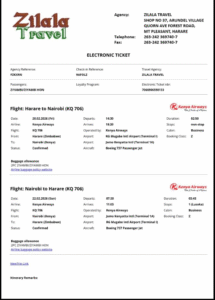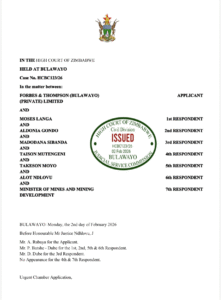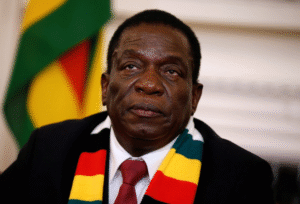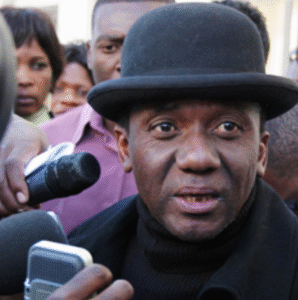ZIMBABWE’S CROSSROADS OF POWER AND PRIVILEGE: INSIGHT INTO MNANGAGWA AND CHIVAYO’S CONTROVERSIAL ALLIANCE

In a striking demonstration of the intertwined worlds of politics and private interests, Zimbabwean President Emmerson Mnangagwa and controversial businessman Wicknell Chivayo were seen in the company of visiting Kenyan President William Ruto yesterday. This high-profile encounter occurred just as President Ruto is slated to inaugurate the Zimbabwe International Trade Fair in Bulawayo today, highlighting another major international activity for Zimbabwe.
Wicknell Chivayo, a name that often stirs controversy, is a staunch supporter and ally of President Mnangagwa. His enterprise, Intratek, is deeply embedded in several significant government contracts, with the most prominent being a US$200 million initiative aimed at bolstering solar power infrastructure. This involvement has sparked intense scrutiny over the dynamics between government contracts and personal affiliations, casting a shadow of doubt on the transparency and integrity of such dealings.
Chivayo’s relationship with the presidency has evidently been advantageous. As a notable figure in business, he has clinched high-value contracts that some critics argue stem from his close connections with Mnangagwa. His recent spectacle of distributing cars to supporters of the ruling Zanu PF party and various celebrities has been metaphorically likened to “throwing confetti at a wedding.” Yet, this grand gesture unfolds against a backdrop of skepticism and implied corruption.
The public nature of Chivayo’s engagements and his explicit praises for Mnangagwa have ignited a wave of criticism. Observers are questioning whether his commendations are strategically aimed at cementing his business interests further within the corridors of power. His attendance at prominent events and meetings intensifies these concerns, underscoring the potentially problematic ties between his business endeavors and political patronage.
The backlash originates from broader worries about corruption and cronyism within Zimbabwe’s governmental and business sectors. The close ties between a sitting president and a businessman with a controversial track record provoke discomfort about the state of governance in Zimbabwe. This situation exposes deep concerns regarding the fairness and transparency of government contracts and the extent to which personal relationships may overshadow public interests.
This issue also highlights the ongoing challenges faced by many African countries, where political and business elites appear deeply interconnected. The implications for policy-making and public trust are significant, as citizens become increasingly skeptical about the motives behind high-level decisions that shape their nation’s economic landscape.
Furthermore, Chivayo’s prominence during international visits, such as the recent state visit by President Ruto, introduces additional complexity. It suggests that the image portrayed to the world and potential international partners might be closely linked to the same networks of influence and reciprocity that dominate national discourse.
As Zimbabwe progresses under Mnangagwa’s leadership, the role of businessmen like Chivayo will continue to be a focal point of scrutiny. Both local and international observers are keen to see how the government will navigate the delicate balance between fostering investment and business development and maintaining a clear, transparent distinction between personal gain and public duty.
In summary, the presence of Wicknell Chivayo at significant political events, his apparent impact on government policies, and the ongoing public dialogue all serve as a stark reminder of the persistent challenges at the intersection of business and governance in Zimbabwe. Looking ahead, there is a collective hope that Zimbabwe can cultivate an environment where business leaders contribute to economic growth and innovation without compromising the principles of fairness and transparency crucial for a thriving democracy.





